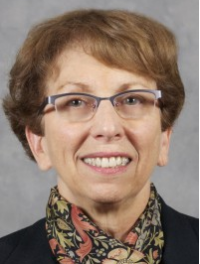The Los Angeles County Department of Public Health (Public Health) issued new recommendations today for vaccinating against invasive meningococcal disease (IMD) after a recently-identified increase in cases.
The press release reads:
“Public Health has now confirmed a total of eight IMD cases in Los Angeles County in 2014. Of these eight cases, four cases were reported among men who have sex with men (MSM), including three men who were HIV-positive.
In contrast to previous IMD investigations in 2012 and 2013, some commonalities were found among the 2014 MSM cases. Of the four IMD cases among MSM, three reported either residence in, or socializing around, the West Hollywood and North Hollywood areas, and three were between 27-28 years of age (the fourth case was 50 years of age).
Based on consultation with the California Department of Public Health and the Centers for Disease Control and Prevention (CDC), Public Health is recommending the Meningococcal vaccine for both HIV-positive MSM (including men who may or may not identify as gay or bisexual) and MSM, regardless of HIV status, whose activities put them at higher risk.
“All HIV-positive MSM and all MSM, regardless of HIV status, who regularly have close or intimate contact with multiple partners, or who seek partners through the use of digital applications, particularly those who share cigarettes, marijuana or use illegal drugs, should visit their health provider to be vaccinated against invasive meningococcal disease,” said Jonathan E. Fielding, MD, MPH, Director of Public Health and Health Officer. “At- risk MSM who don�t have health insurance can obtain a free vaccination through the Department of Public Health.”
IMD is a sporadic and uncommon bacterial infection of the blood or the lining of the brain and spinal cord that can affect the entire body. The infection can cause brain damage, hearing loss, and even death. The bacteria can be spread by very close exposure to sneezing and coughing or direct contact with saliva or nose mucus. Disease symptoms may include: high fever, stiff neck, altered mental status, skin rash, severe headache, low blood pressure, aversion to bright lights, and generalized muscle pains. Symptoms usually occur within 5 days of the exposure, but may present as many as 10 days after exposure. IMD progresses rapidly, so immediate diagnosis and treatment is imperative.
The risk for IMD is very low for the general population. The bacteria are not spread by casual contact such as being in the same room as an infected person or handling items that an infected person has touched. The bacteria that cause meningococcal disease are much less contagious than the viruses that cause the flu. Although anyone can get meningococcal disease, certain medical conditions and high-risk activities have been associated with transmission of IMD.
High-risk activities include:
- Smoking (marijuana, cigarettes, and hookah)
- Close contact with an infected person (sharing beverages or cigarettes, kissing, coughing)
- Staying in group settings (such as dorms, jails or shelters) for a prolonged period of time.
The current meningococcal vaccine can prevent two of the three most common types of meningococcal disease in the United States, including the most common type identified in Los Angeles County. Although meningococcal disease can be treated with appropriate antibiotics if detected early it is often not diagnosed until it has become life- threatening.
Public Health will be offering free meningococcal vaccine to LA County residents without health insurance, beginning Thursday, April 3. For a listing of clinics, please call the LA County Information Line at 2-1-1 from any cell phone or land line in the county or visit http://publichealth.lacounty.gov/.
For more information regarding invasive meningococcal disease and vaccination, please visit http://www.cdc.gov/meningococcal/ and http://publichealth.lacounty.gov/acd/Mening.htm.
The Department of Public Health is committed to protecting and improving the health of the nearly 10 million residents of Los Angeles County. Through a variety of programs, community partnerships and services, Public Health oversees environmental health, disease control, and community and family health. Public Health comprises nearly 4,000 employees and has an annual budget exceeding $900 million. To learn more about Public Health and the work we do please visit http://www.publichealth.lacounty.gov, visit our YouTube channel at http://www.youtube.com/lapublichealth, find us on Facebook at http://www.facebook.com/lapublichealth, or follow us on Twitter: @LAPublicHealth.”
For more details, click here.

